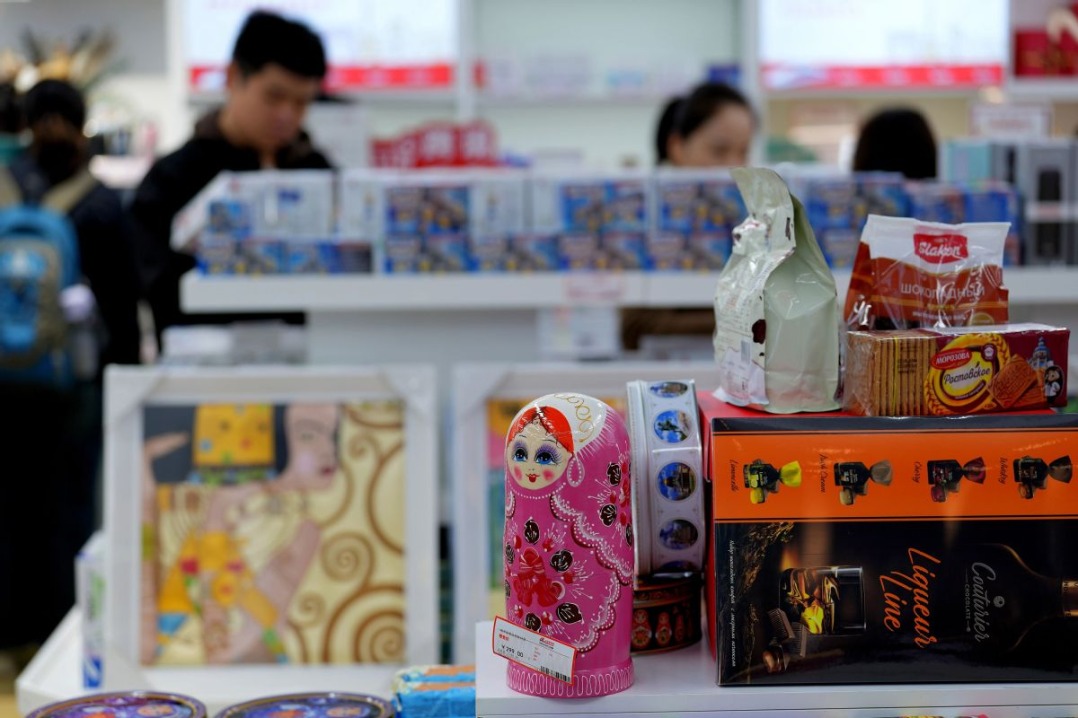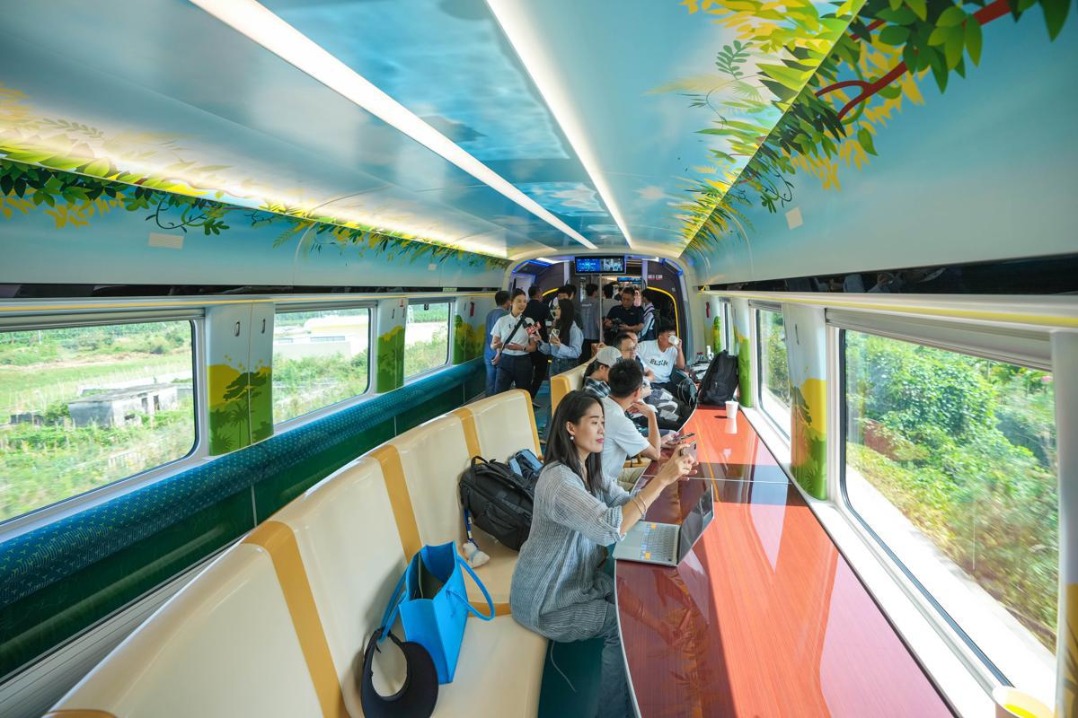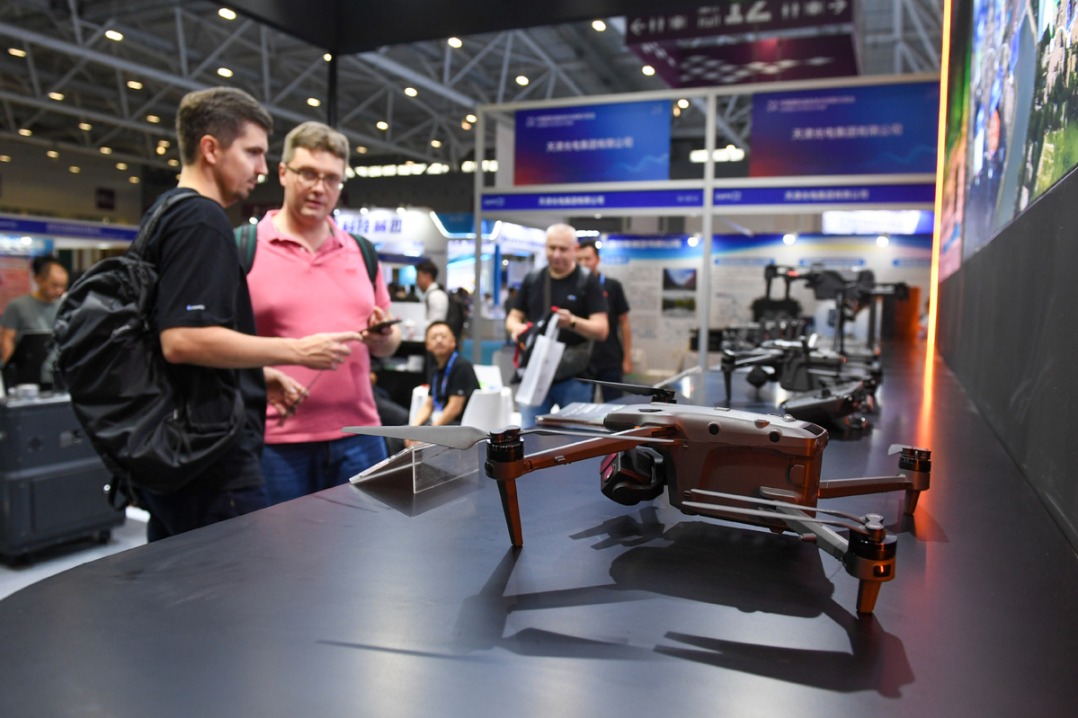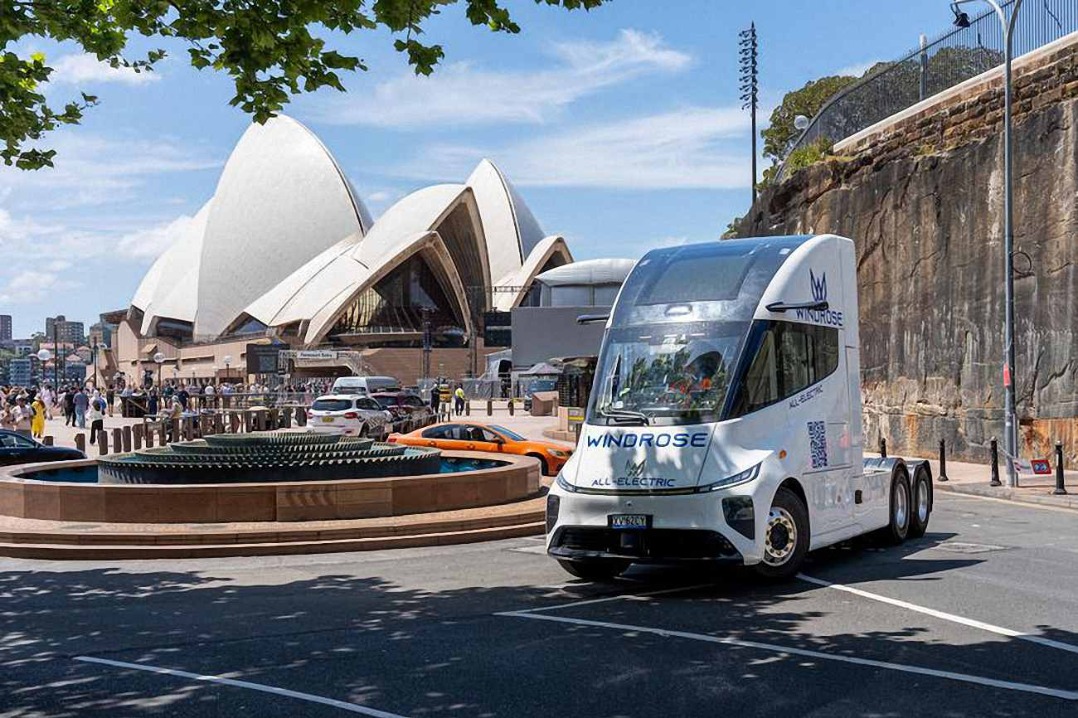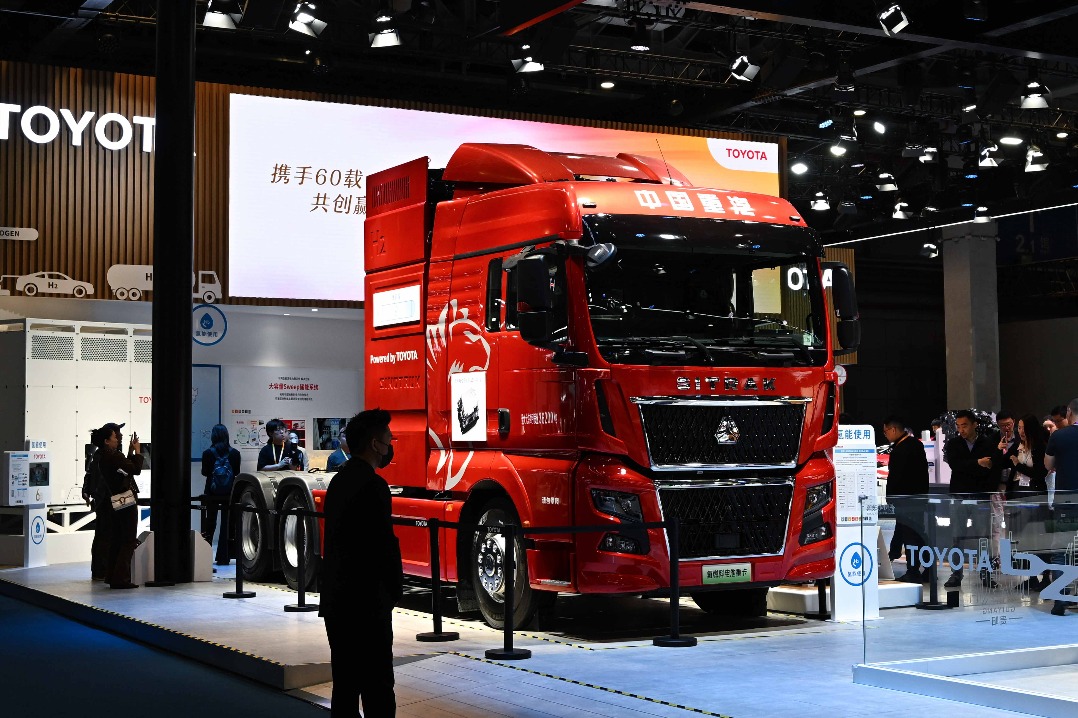Battery-swapping deal to fuel sector's growth

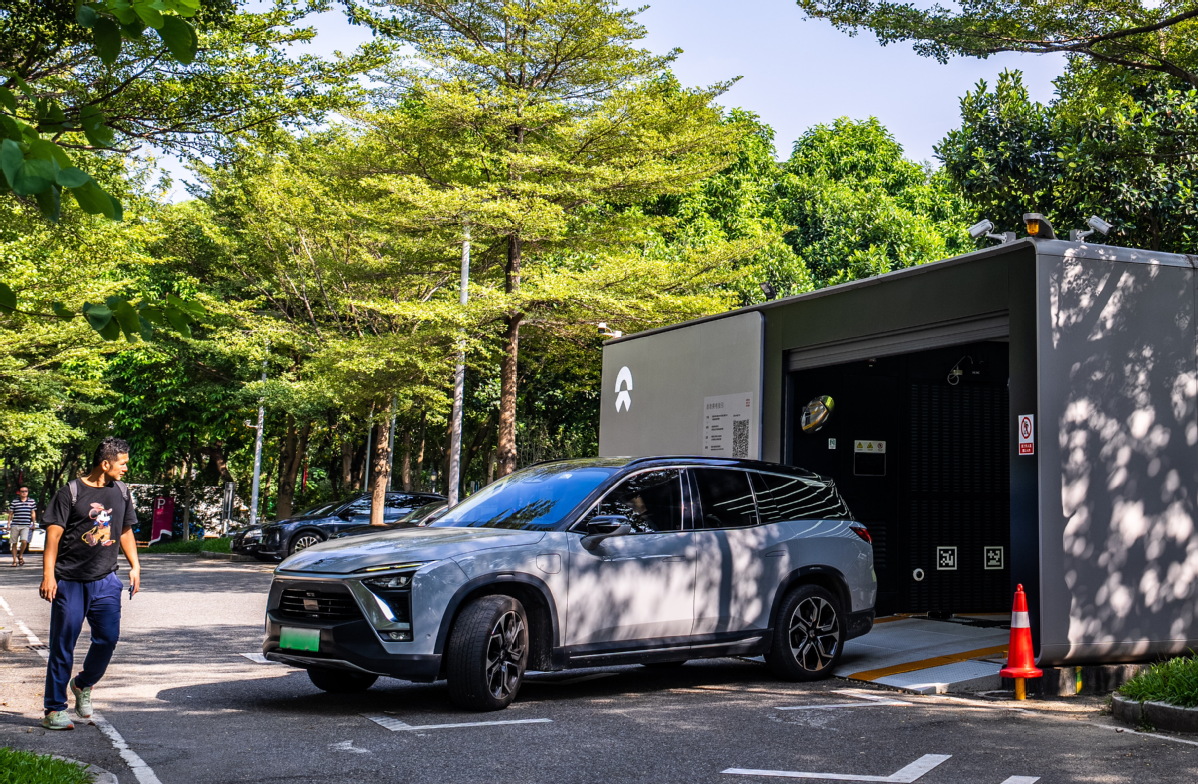
Nio chairman forecast success after it signs agreement with Geely on standard and tech
Chinese electric vehicle startup Nio has expanded its battery swapping program by signing a cooperative deal with Geely, which is expected to enhance adoption of battery-swapping models and contribute to the development of the new energy vehicle industry.
The two companies signed an agreement on standards, technology and model development of battery swapping on Wednesday. The partnership came just a week after Nio inked a similar agreement with Changan Automobile.
"Nio and Geely share a profound understanding of battery swapping and are dedicated to investment in battery swapping technology for private cars and commercial vehicles with rich experience in swapping service and operations," said William Li, co-founder and CEO of Nio.
"This partnership will popularize battery swapping, offer high-quality and convenient experience to more users and contribute to the development of the smart EV industry," he said.
Geely Chairman Li Shufu said that as one of the crucial supplementary methods for NEVs, battery swapping's development requires industry-wide collaboration and concerted efforts. Geely's battery swapping unit, E-Energee, operates in some 30 cities nationwide.
Battery swapping involves switching dead batteries for ones that are fully charged, rather than the more common method of simply recharging. Compared with traditional charging facilities, battery swapping is safer, takes less time and extends battery life.
Nio has invested in battery swapping for five years, and owns and operates the world's largest battery swapping network for EVs, with more than 2,100 stations providing over 32 million battery swaps to date. The company also has more than 1,600 related patents.
Construction of Nio's power swap battery stations demands substantial investment and each station costs around 3 million yuan ($419,919) to build and equip, according to Nio.
Nio's financial reports show that from 2018 to the first half of 2023, the company accumulated a net loss of 76.4 billion yuan — partly due to construction of its battery-swapping service system.
"Nio has faced profitability challenges amid recent workforce reductions for efficiency and cost-cutting. However, the collaborations with Geely and Changan signal confidence in its battery-swapping mode from major auto companies, potentially assisting Nio in securing financing from capital markets," an industry insider said.
He noted that Nio can charge technology and patent fees to Changan and Geely, as they will collaborate on joint research and development of battery-swapping models and technology.
Most of Nio's battery swapping stations can automatically navigate a vehicle into a proper position, with the battery swapped in minutes. Although the technology has been well-received by users, the startup faces low utilization of its stations due to limited sales.
However, the deals with Changan, whose cumulative sales reached 25.3 million units as of October, and Geely — China's second-largest privately-owned automaker with a portfolio including Volvo, Zeekr, Lotus and Polestar — are indicating battery swapping is becoming more mainstream, the insider said.
Nio delivered some 126,100 new vehicles in the first 10 months of this year, bringing its cumulative sales to 415,600 units.
Yale Zhang, managing director of consulting firm Automotive Foresight, said that positioned as a mid- to high-level EV brand, Nio offers battery-swapping service as a strategic move to elevate its brand image and cultivate customer loyalty — an approach that might not be as suitable for brands with a diverse range of models and prices.
Besides, car owners may worry about receiving lower-quality batteries during the swapping process, he added.
Zhang said implementation of battery swapping should be targeted at the taxi and ride-hailing sectors, given their extensive fleets.
Official statistics show that China had 1.36 million taxis by 2022 and 2.57 million private ride-hailing cars by the end of August — underscoring the potential for high usage of battery swapping stations and necessitating a standardized battery pack. Government support is crucial in facilitating this transition, Zhang added.
In recent years, battery swapping has become a policy focus. The government has introduced policies to support development of the sector, issuing EV battery swapping safety requirements in 2021 as the first national standard for it.
A report by Orient Securities projects that the battery-swapping models are expected to account for around 30 percent of NEVs by 2025.
Statistics from the China Association of Automobile Manufacturers show that sales of NEVs reached 956,000 units in October, with a market share of 33.5 percent. From January to October, NEV sales totaled 7.28 million units, a year-on-year growth of 37.8 percent.
The CAAM forecast that total NEV sales for the year are expected to exceed 9 million units.



















